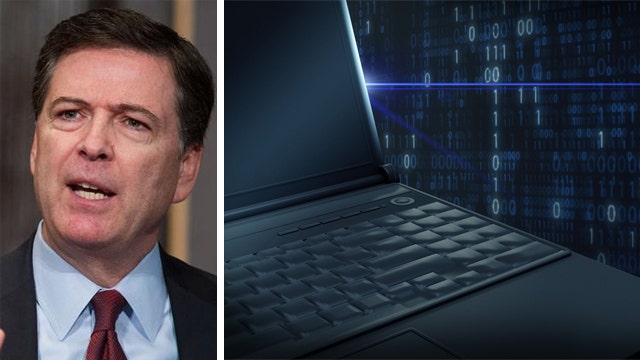Federal law enforcement officials pressed their concerns about data encryption before Congress Wednesday, telling senators that the right to privacy is not absolute and must be weighed against public-safety interests.
The testimony by FBI Director James Comey and Deputy Attorney General Sally Yates, the No. 2 official at the Justice Department, was part of an ongoing and high-stakes dispute between the Obama administration and some of the world's most influential technology companies.
At issue is encryption technology in smartphones that Silicon Valley companies say provides customers invaluable security in their communications and protection from hackers and corporate spies. But law enforcement officials say the same technology has made it harder for them, even with a warrant, to monitor and intercept messages among criminal suspects.
The concern is especially acute at a time when the Islamic State has used social media to reach followers in the United States, then moved the conversation to encrypted platforms, the officials say.
"The current public debate about how to strike the careful balance between privacy rights and public safety has at times been a challenging and highly charged discussion," Yates told the Senate Judiciary Committee. "I believe that we have to protect the privacy of our citizens and the safety of the internet.
"But those interests are not absolute. And they have to be balanced against the risks we face from creating warrant-proof zones of communication," she said.
The Justice Department says it is not seeking new authorities, though officials say they're concerned that existing laws have not kept pace with advancing technologies. One law, for example, requires telecom carriers to help law enforcement intercept electronic communications, but does not cover Internet-based services such as e-mail.
Vermont Sen. Patrick Leahy, the senior Democrat on the committee, expressed wariness about facilitating law enforcement's access to encrypted communication. He said he wasn't sure how much that would help.
"Strong encryption would still be available from foreign providers," Leahy said. "Some say that any competent Internet user would be able to download strong encryption technology, or install an app allowing encrypted communications -- regardless of restrictions on American businesses."
Tech companies have pushed back, calling the concerns overblown and vowing to protect customer privacy. They say that any "key" that could give law enforcement access to encrypted devices could presumably be exploited by hackers and criminals, too.
In a speech last month, Apple CEO Tim Cook said the company would not waver in offering encryption tools to customers and said weakening encryption would have a "chilling effect on our First Amendment rights and undermines our country's founding principles."
In a May letter to the White House, a coalition of companies argued that strong encryption protects against "innumerable" threats and urged the government to "reject any proposal that U.S. companies deliberately weaken the security of their products."
"We request that the White House instead focus on developing policies that will promote rather than undermine the wide adoption of strong encryption technology. Such policies will in turn help to promote and protect cybersecurity, economic growth, and human rights, both here and abroad," the letter said.













































